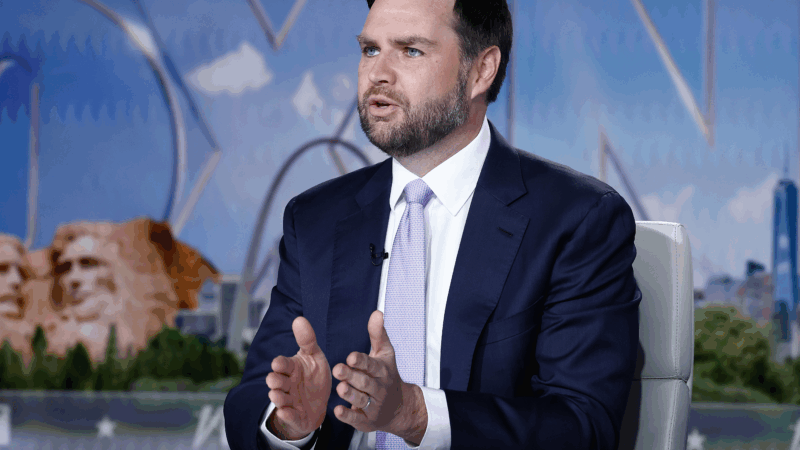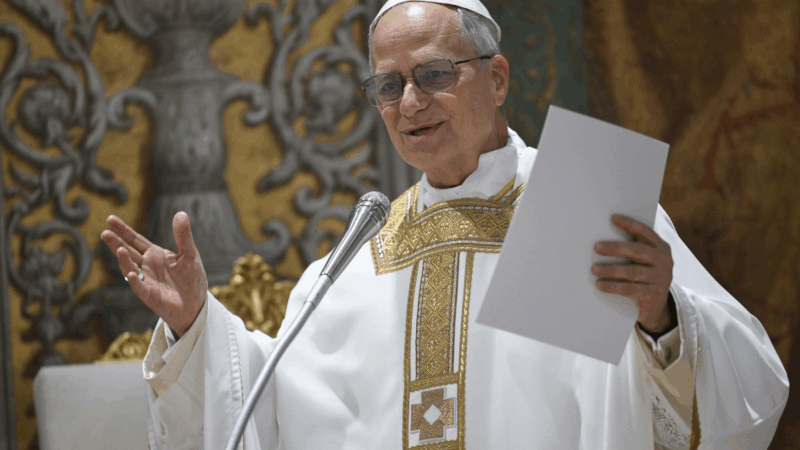NPR’s chief diversity officer to retire, with DEI in the political spotlight
NPR Chief Diversity Officer Keith Woods announced Wednesday that he would retire after a 46-year career in journalism and 15 years at the public broadcaster, even as the issue he has championed for decades takes center stage in political discourse.
Woods, who is 66 years old, presented the decision as his own. He told colleagues he had started preparing for his retirement in 2023. He put it off after Hurricane Helene destroyed his home in Tampa, Florida last year.
“After more than four decades in journalism, I’m happy to finally be able to say the words, ‘I’m retiring,'” Woods said in a statement released by the network. “Though the attacks on the work of diversity, equity and inclusion have taken some of the joy out of this moment.”
Woods’ retirement, effective May 2, comes as the federal government and some companies back away from stated commitments to diversity, equity and inclusion. PBS shuttered its DEI office earlier this month, ousting two staffers, although it says it remains committed to telling the stories of all Americans. Because it receives federal funding, PBS said its lawyers had concluded that the move was required to stay in compliance with an executive order from President Trump. In January, he directed federal agencies to terminate all “equity-related” grants or contracts. Another order required federal contractors to stipulate that they don’t promote such measures.
A federal judge has since largely blocked Trump’s orders. But Trump and his chief adviser on slashing government programs, billionaire entrepreneur Elon Musk, have called for all federal funding for NPR, PBS and public broadcasting to be eliminated. Republicans in Congress have submitted bills to do that. (NPR typically receives about 1% of its funds from federal sources annually, and about 3% indirectly from stations; PBS receives 16%, according to a spokesperson for the television system.)
In a memo, the network’s chief executive, Katherine Maher, praised Woods and told staffers and station executives that NPR would not veer from its dedication to diversity.
“NPR remains committed to supporting a diverse workforce, a welcoming workplace, and journalism that serves an audience that is representative of the American public,” Maher wrote. After Woods leaves, NPR Vice President for Diversity, Equity & Inclusion Whitney Maddox and a deputy now report to the network’s chief operating officer.
Woods came to NPR after long stretches at the New Orleans Times-Picayune and the Poynter Institute, a journalism school in St. Petersburg, Fla. He is credited with securing funding for NPR’s long-running podcast Code Switch and pushing NPR journalists to broaden the sources represented in their reporting. He also worked with public radio stations across the country.
He found a firm ally in former NPR Chief Executive John Lansing, who died last year. Lansing declared diversity to be the network’s North Star, both as a moral proposition and a business strategy. NPR increased the numbers of people of color in its ranks, though its audiences did not notably grow or shift. (NPR’s digital audiences tend to be much younger and more diverse than its broadcast audiences.)
In an essay last year that foreshadowed his own departure from the network, former NPR senior business editor Uri Berliner argued that Lansing’s approach to diversity shut out ideological diversity at the network. That critique appears to serve as one of the springboards for U.S. House hearings that are expected to focus on NPR and PBS late next month.
Woods took pains to say at a staff meeting today that the timing of his departure had nothing to do with the political moment.
“I might be doing virtual cartwheels right now, but for the context of my announcement,” Woods said, citing “a withering assault on the values of diversity, equity, inclusion; corporate capitulation all around us; and the treatment of diversity, equity and inclusion as a virus whose carriers must be eradicated. It makes this look like something it is not.”
Disclosure: This story was reported and written by NPR Media Correspondent David Folkenflik and edited by Deputy Business Editor Emily Kopp and Managing Editor Vickie Walton-James. Under NPR’s protocol for reporting on itself, no corporate official or news executive reviewed this story before it was posted publicly.
Vice President Vance says India-Pakistan fighting is ‘none of our business’
Vice President Vance said the fighting between India and Pakistan was "fundamentally none of our business." Experts say the U.S. used to work hard to de-escalate crises between the nuclear states.
Pope Leo’s stance on key issues, from climate change to LGBTQ+ rights to U.S. politics
Pope Leo is seen as a centrist who shares his predecessor's progressive views on certain social issues. Here's what we know so far.
School cellphone ban passed in the final days of the legislative session
Smartphones are practically appendages for many nowadays, but one place you probably won't see them in use soon is in Alabama schools. Alabama lawmakers gave final passage this week to a bill that would ban them during the school day. It's where we start our weekly legislative roundup with Todd Stacey, host of Capital Journal on Alabama Public Television.
Trump tightens control of independent agency overseeing nuclear safety
NPR has learned that rules must now be vetted by the White House and that the administration is drafting an executive order that could loosen radiation limits.
Under the spell of Hildegard: A new album reboots ancient music
The 12th-century abbess, scientist and composer inspires new interpretations of her music, and new works, on an album spotlighting soprano Barbara Hannigan.
Americans still dream about factory jobs. Can they be brought back?
Trump's administration said they want tariffs to boost US manufacturing, and most Americans want more factory jobs here. But what makes us nostalgic for factory work?









